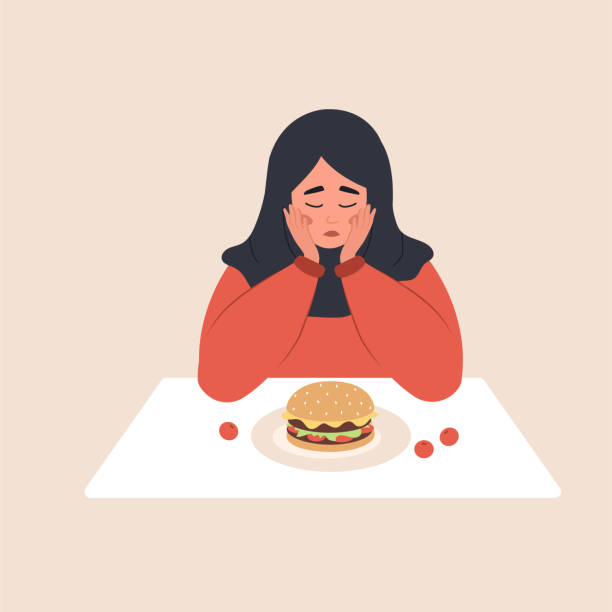Mental Well-Being
The Long-Term Effects of Depression Exposed
Depression, which is commonly seen as a temporary state of low mood, can have far-reaching implications that go beyond its immediate symptoms. In this article, we will look at the often-overlooked topic of depression’s long-term impacts, putting light on how it can affect numerous elements of a person’s life. While depression is typically linked with feelings of melancholy and despair, its effects can extend to all aspects of daily life, from relationships and work performance to physical health and general quality of life. By looking into the research and personal experiences of those affected by depression, we hope to discover the long-term consequences of this mental health illness and emphasize the necessity of early intervention and holistic treatment options. Join us as we explore the nuances of depression’s long-term impacts and push for increased knowledge, understanding, and support for people affected by this devastating disorder.

Understanding Depression
Depression is a mental health condition that affects a person’s mood, thinking, and behavior. It is a common and significant medical condition that can impair a person’s daily life. Depression can strike at any age and affects people from all races, nationalities, and socioeconomic situations.
Symptoms and Diagnosis
Depression can cause a wide range of symptoms, including chronic sorrow, loss of interest in activities, feelings of worthlessness or guilt, exhaustion, and changes in eating or sleep patterns. These symptoms can be moderate or severe, and last for weeks, months, or even years.
Mental health practitioners use the Diagnostic and Statistical Manual of Mental Disorders (DSM-5), which defines specific criteria for diagnosing major depression and persistent depressive disorder. The criteria include the existence and duration of specific symptoms.
Causes and Risk Factors
The causes of depression are complicated and poorly understood. However, research indicates that depression is most likely caused by a combination of inherited features, brain chemistry, and life experiences.
Some persons may be predisposed to depression due to personality factors such as low self-esteem or a pessimistic attitude toward life. Environmental factors such as stress or trauma can also contribute to the onset of depression.
Depression is a curable disorder. If you or someone you know is suffering from depression, seek help from a mental health professional. Therapy, medicine, or a mix of the two are all possible treatment choices.

Physical Consequences of Depression
Depression is a mental disease that can have a negative impact on a person’s physical health. Physical symptoms such as aches and pains, as well as changes in eating and sleep patterns, are frequent among those suffering from depression. In certain cases, physical symptoms can last long after the depression has been treated.
Heart and Cardiovascular Health
Depression has been associated with an increased risk of heart disease and other cardiovascular issues. According to research, those who suffer from depression are more likely to have high blood pressure, a fast heart rate, and other risk factors for heart disease. This could be because depression causes inflammation in the body, which damages blood vessels and raises the risk of heart disease.
Weight and Appetite Changes
Depression can also affect appetite and weight. Some persons with depression may lose their appetite, which can contribute to weight loss. Others may develop an increased appetite, which can contribute to weight gain. Some antidepressant drugs may also cause changes in appetite and weight.
Sleep Disturbances
Sleep difficulties are a common sign of depression. People with depression may have difficulty falling or staying asleep, or they may sleep excessively. Sleep disturbances can have a negative impact on overall health because sleep is necessary for both physical and mental well-being.
To summarize, depression can have a number of physical repercussions, including heart and circulatory difficulties, changes in appetite and weight, and sleep disturbances. Individuals with depression should seek treatment for their mental and physical health.

Mental and Emotional Impact
Living with long-term depression can have a substantial influence on a person’s mental and emotional health. It can alter cognitive and behavioral patterns, as well as impair self-perception and relationships.
Cognitive and Behavioral Changes
Long-term depression can lead to a variety of cognitive and behavioral abnormalities. Individuals may have difficulties concentrating, making judgments, and retaining information. They may also have a pessimistic attitude toward life, feeling hopeless or powerless.
Depression can sometimes cause behavioral changes. Individuals may feel unmotivated, lose interest in formerly enjoyable hobbies, and have difficulties sleeping. They may also suffer hunger fluctuations, which can cause weight gain or loss.
Effects on Self-Perception and Relationships
Depression can also have a substantial impact on one’s self-esteem and relationships. Individuals with depression may have low self-esteem and believe they are not good enough or are a burden to others. This can result in social isolation and relational troubles.
Individuals suffering from depression may also have difficulty forming and maintaining good relationships. They may suffer with communication, making it difficult to express their emotions or connect with others. This might lead to feelings of loneliness and worsen their sadness.
Individuals experiencing long-term depression should get support from a mental health practitioner. Psychotherapy, such as talk therapy, can help people build coping techniques and enhance their mental and emotional health. In some circumstances, medication may be prescribed to help alleviate symptoms.
It’s also worth noting that depression can coexist with other mental health illnesses, such as anxiety or bipolar disorder. Furthermore, people suffering from depression may be more likely to develop comorbidities such as substance abuse or suicidal thoughts or conduct. Individuals with long-term depression should seek professional guidance and support to manage their symptoms and enhance their overall quality of life.

Treatment and Management
Medications and Therapies
Individuals with major depressive illness can choose from a variety of therapy choices. Selective serotonin reuptake inhibitors (SSRIs), serotonin-norepinephrine reuptake inhibitors (SNRIs), and norepinephrine/dopamine reuptake inhibitors (NDRIs) have all been shown to be effective treatments for depression. These drugs operate by raising the levels of substances in the brain that control mood.
In addition to medicine, therapy is a crucial part of treating depression. Cognitive behavioral therapy (CBT) has been demonstrated to be useful for treating depression. CBT is a short-term, goal-oriented therapy that aims to alter negative thought patterns and behaviors that lead to depression.
Clinical research has also shown that mindfulness-based therapies, such as mindfulness-based cognitive therapy (MBCT), can be useful in reducing relapse in those suffering from depression. MBCT combines components of CBT and mindfulness meditation methods.
Lifestyle Adjustments and Support Systems
In addition to medication and treatment, lifestyle changes and support systems can assist manage depression. Eating a nutritious diet and doing regular exercise can help enhance your mood and general well-being. It is also critical to have a solid support network, which might include family, friends, and mental health experts.
Individuals suffering from depression can access resources during a crisis. If someone is experiencing depression symptoms, the Mayo Clinic suggests that they consult a doctor or a mental health professional right once. Individuals who require emergency assistance can also access crisis lifelines.
Overall, treating and managing depression necessitates the use of medication, therapy, lifestyle changes, and support systems. Individuals suffering from depression can learn to manage their mental health and improve their quality of life with the correct support and services.
Conclusion
To summarize, the long-term impacts of depression are extensive and diverse, influencing people’s lives in ways that go far beyond the first period of low mood. Depression has a wide-ranging and long-lasting influence on relationships and professional performance, as well as an increased risk of chronic health disorders and a lower quality of life. However, by acknowledging depression’s long-term impacts and advocating for comprehensive treatment techniques that target both symptoms and underlying causes, we can reduce its impact and enable people to live satisfying lives. It is critical to de-stigmatize mental health talks, promote early intervention, and create a supportive environment in which persons affected by depression feel understood, accepted, and able to receive the resources they require to thrive. We can interrupt the cycle of depression’s long-term effects by working together to raise awareness and provide compassionate assistance.
Trusted Health, Wellness, and Medical advice for your well-being


